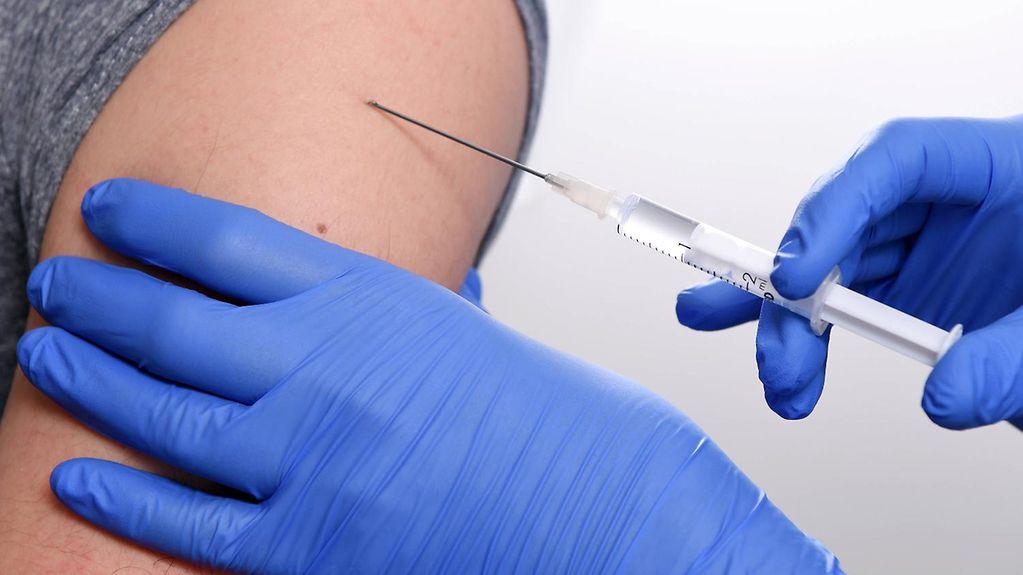New regulations as of Sunday
Certain restrictions are to be eased for people who have been vaccinated against COVID-19 or have recovered from a proven infection with SARS-CoV-2. The Cabinet adopted regulations that have now been approved by the two chambers of the German parliament, the Bundestag and the Bundesrat. The new regulations are to come into effect as of Sunday 9 May.
3 min reading time

The regulations stipulate what liberties will be regained by people who are vaccinated or have recovered from COVID-19.
Photo: imago images/ULMER Pressebildagentur
The COVID-19 protective measures – regulation of exceptions provides for exceptions and for easing restrictions for people who have been vaccinated or have recovered from COVID-19. Some of the restrictions set out in the Infection Protection Act to contain the pandemic will no longer apply to them, including curfews and contact restrictions. Equally, this group will be exempted from some quarantine obligations.
Following the adoption of the regulations by the Cabinet, they have now also been approved by the Bundestag and the Bundesrat. The new regulations are to come into effect as on Sunday 9 May.
Lifting unjustified intervention in fundamental rights
The reason for these new regulations can be seen in the increasing volume of scientific evidence that people who have been vaccinated or who have recovered have a far lower risk of infecting others. The aim is to end interventions in fundamental rights that are no longer justified.
“With the regulations now adopted, we intend to stipulate what liberties people who have full vaccination cover or who have recovered from COVID-19 will regain,” explained Federal Minister of Justice Christine Lambrecht.
What restrictions are to be eased?
The COVID-19 protective measures – regulation of exceptions provides for the following in particular:
- Contract restrictions and curfews will no longer apply to people who have been vaccinated or recovered. This means, for instance, that these individuals will no longer count towards the total permissible number of people at private gatherings. Curfews restricting movement during the night hours imposed under the provisions of the Infection Protection Act will also cease to apply to this group.
- Where COVID-19 protective measures provide for exceptions for people with a negative test result, individuals who have been vaccinated or who have recovered will be classed with the former group. They will not be required to provide evidence of a recent negative test result, for instance, before they can go to the hairdresser or the zoo or go shopping.
- Sport: The restrictions stipulating that non-contact individual sports can only be undertaken alone, with one other person or with members of the same household will no longer apply for people who have been vaccinated or recovered.
- Quarantine obligations will no longer apply for people who have been vaccinated or recovered – for instance when they enter Germany from another country. Quarantine regulations will still apply, however, if they are entering Germany from an area classed as an “area of variant of concern”.
- One thing is important though – the AHA formula (distance, hygiene, face masks) will still apply. Even people who have been vaccinated, who have recovered or who have tested negative must continue to wear a face mask and to distance. These restrictions have not been lifted.
What evidence will vaccinated individuals and those who have recovered be required to provide?
- People who are vaccinated must provide evidence that they have full vaccination cover – for instance their yellow vaccination certificate. Depending on the vaccine used, one or two vaccinations are required to ensure full protection. Full protection is achieved 14 days after the second dose in a two-dose series or 14 days after a single-dose vaccine. And, they must not display any symptoms of a possible COVID-19 infection. This includes shortness of breath, a new cough, fever or any loss of the sense of smell or taste.
- Individuals who have recovered, must provide evidence of a positive result following a PCR test (or another nucleic acid amplification test), taken at least 28 days previously but no more than 6 months ago. In addition these restrictions can only be lifted provided the person has none of the symptoms typical of a COVID-19 infection.
You will find more details and the full regulation on the website of the